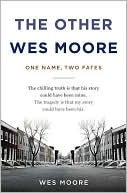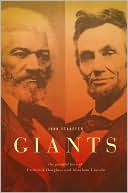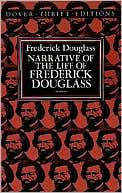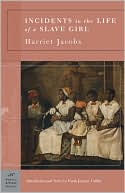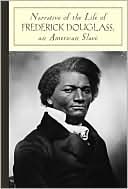Rosa Parks: A Life
Fifty years after she made history by refusing to give up her seat on a bus, Rosa Parks at last gets the major biography she deserves. The eminent historian Douglas Brinkley follows this thoughtful and devout woman from her childhood in Jim Crow Alabama through her early involvement in the NAACP to her epochal moment of courage and her afterlife as a beloved (and resented) icon of the civil rights movement. Well researched and written with sympathy and keen insight, the result is a moving,...
Search in google:
Fifty years after she made history by refusing to give up her seat on a bus, Rosa Parks at last gets the major biography she deserves. The eminent historian Douglas Brinkley follows this thoughtful and devout woman from her childhood in Jim Crow Alabama through her early involvement in the NAACP to her epochal moment of courage and her afterlife as a beloved (and resented) icon of the civil rights movement. Well researched and written with sympathy and keen insight, the result is a moving, revelatory portrait of an American heroine and her tumultuous times.Atlanta Journal ConstitutionRosa Parks is a superb starting point and a vivid illustration of how a single life can make a difference.
Prologue91Up from Pine Level242Coming of Age in Montgomery503A Stirring Passion for Equality734Laying a Foundation1005The Preparation1246The Bus Boycott1537Strength through Serenity1848"We Make the Road by Walking It"2119Steadfast and Unmovable24010Detroit Days26411Months of Bloody Sundays29312Onward312Epilogue340Bibliographical Notes348
\ Atlanta Journal ConstitutionRosa Parks is a superb starting point and a vivid illustration of how a single life can make a difference.\ \ \ \ \ Sacramento BeeBrinkley writes a fine account of the act of civil disobedience that made Parks famous - her refusal, on Dec. 1, 1955, to give up her seat on a Montgomery, Ala., bus to a white passenger. But this biography of Parks also bookends that event with an informative history of earlier struggles against segregation and an exploration of Parks' active life after Montgomery. The ending, a glimpse at a wonderfully poignant meeting in 1990 between Parks and South African's Nelson Mandela, is priceless.\ \ \ Charlotte ObserverRosa Parksis a vivid illustration of how a single life can make a difference.\ \ \ \ \ Publishers WeeklyIn the second volume to date of the popular Penguin Lives series to be devoted to a woman (remarkably, only four of the projected 26 subjects will be female), historian Brinkley shreds several key myths surrounding Rosa Parks, the African-American woman who became "the Mother of the Civil Rights Movement" at the age of 42, when she boldly defied Jim Crow laws by refusing to give up her seat to a white rider on a segregated bus in 1955. The act catalyzed the historic 381-day Montgomery bus boycott and stirred the nation's conscience. Yet Parks has a more complex personality than is suggested by her shy, soft-spoken public persona, Brinkley reveals. Despite a humble, fatherless childhood in rural Alabama, she quickly distinguished herself as a tireless worker with the local NAACP, devoting her energies to area youth groups, recording the problems of victims of hate crimes and participating in the organization's major state conferences. Brinkley (The Unfinished Presidency, etc.) pinpoints the origins of Parks's strength and strong social commitment as he details the legalized segregation that tainted every aspect of Southern life. His short, compelling scenes rivet the reader, although some merely expand on previously disclosed events, such as the wave of jealousy and backbiting among Parks's peers, her resurgence in Detroit politics as an aide to Representative John Conyers and the savage beating and robbery that almost took her life in 1994. Like several books in this series, Brinkley's tribute to Parks succeeds not because of an abundance of fresh revelations but because of its wealth of insight and rich portraiture. Agent, Andrew Wylie; 4-city author tour. (June) Copyright 2000 Cahners Business Information.\|\ \ \ \ \ Kirkus ReviewsA graceful, informative biography of the mother of the Civil Rights movement, who wouldn't stand for Jim Crow on her bus. Brinkley (The Unfinished Presidency, 1998, etc.) examines the background of the soft-spoken, prayerful woman who seemed unlikely to become a historic icon. "Before King there was Rosa Parks," wrote Nelson Mandela, and Brinkley demonstrates that before Rosa Parks there was a poor, fatherless seamstress from Tuskegee named Rosa McCauley. Her hometown gave her Booker T. Washington's proud self-reliance, while the African Methodist Episcopal Church fueled her courageous expectations for justice and righteousness. Her grandfather moved the family to Montgomery, carrying a shotgun to ward off the threats of Ku Klux Klan violence. Brinkley reports on a litany of lynchings, murders, and other segregation-related arrests that Parks witnessed before and after she married a barber named Raymond Parks. While Raymond was perhaps best known for his reluctance to have his wife turned into a civil-rights symbol (and consequently a target for racists), the author credits him with radicalizing her through his espousal of NAACP politics and attendance at passive-resistance seminars. Brinkley nonetheless makes a good case that Parks did not plan her epochal rebellion during that bus-ride of December 1, 1955, in advance. "It seemed as if Rosa Parks were two people: one, a traditionally submissive Negro laborer; the other, a modern African-American woman bold enough to demand her civil rights." Each moment of Parks's defiance (her refusal to yield, her subsequent arrest, etc.) is described in detail. Brinkley then depicts the astonishing phenomenon by which a one-daybusboycott turned into a pivotal protest of six months, and he presents the input of Reverend King and others. He also summarizes Parks's historic impact and provides 11 pages of bibliography for those who wish to study the controversy in greater detail. No collection of African-American history should miss this bus.\ \

